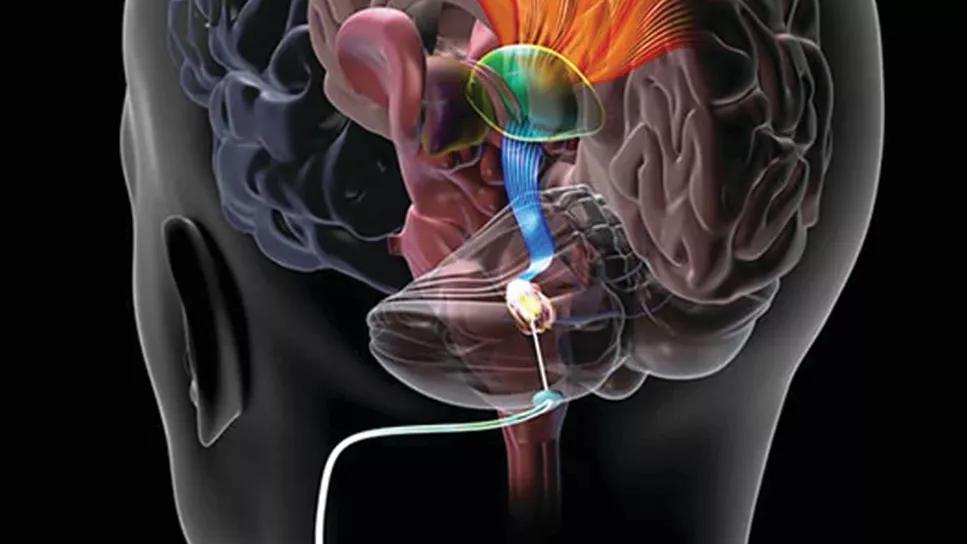Team members from Kessler Foundation and Kessler Institute for Rehabilitation, a Select Medical hospital, will participate in an EMAGINE 2.0 study, a trial to evaluate non-invasive brain stimulation for upper-extremity disability post-stroke. This study seeks to validate a clinical signal identified in earlier research by utilizing Brain.Q’s “Q Therapeutic System.”
A two-year grant from Brain.Q will fund the study titled, “The Efficacy of a Frequency-Tuned Electromagnetic Field Treatment in Facilitating the Recovery of Subacute Ischemic Stroke Patients – a Pivotal Study (the EMAGINE 2.0 study).” The Q Therapeutic System marks the third version of the company’s investigational wearable device, which Kessler scientists and clinicians have collaborated on in their research efforts.
Leading research scientists engaged in the study include Steven Kirshblum, MD, chief medical officer of the Foundation and Kessler Institute for Rehabilitation, the Foundation’s Ghaith J. Androwis, PhD, senior research scientist and director of the Rehabilitation Robotics and Research Lab and Guang Yue, PhD, director, Center for Mobility and Rehabilitation Engineering Research, and Uri Adler, MD, chief quality officer, director of Stroke Rehabilitation and medical director at Kessler Institute for Rehabilitation’s Saddle Brook, NJ, campus.
Stroke is a debilitating condition and the leading cause for long-term disability with health consequences such as hemi-paralysis, loss of limb function, loss of work, and decline in quality of life. “The primary focus of this investigation is to assess the impact of Brain.Q’s specialized brain stimulation therapy in lowering overall disability following stroke,” said Dr. Kirshblum. “To ensure the best recovery outcomes after a stroke, it’s vital to focus on restoring arm and hand function. This study represents a significant step forward in helping individuals achieve greater independence at home, in their communities and their professional environments.”
Kessler Institute for Rehabilitation is one of 20 rehabilitation facilities nationwide recruiting participants for this trial. The Q Therapeutic System will be administered five times a week within the sub-acute phase – the first three to six months following stroke. Approximately 120 subjects will take part in this research. The majority of the sessions will take place at home.
The therapy involves treating subacute stroke survivors using a portable, battery-operated, lightweight system that provides extremely low frequency, electromagnetic stimulation and low-intensity electromagnetic fields. “This investigational therapy aims to optimize the brain’s learning rate following a stroke, enhancing its ability to adapt and heal,” said Dr. Androwis. “Boosting neuroplasticity helps the damaged nervous system reorganize and function more like that of someone who hasn’t experienced a stroke.”
Study participants will be asked to perform home-based exercises during the treatment sessions. “There is substantial evidence that exercise-based programs provided in the home after discharge from a rehabilitation facility may improve cardiovascular health and decrease the risk of cardiovascular events,” said Dr. Yue.
“Research has also showed improved mobility, better self-care, and functional independence,” added Dr. Adler. “Findings from this study will help researchers learn more about the use of electromagnetic stimulation and low-intensity electromagnetic fields as a treatment to improve arm and leg function post-stroke.”
Yotam Drechsler, CEO of Brain.Q, expressed enthusiasm for partnering with the Kessler team, leaders in rehabilitation research and clinical care: “By working together, we aim to reshape the future of stroke recovery, utilizing breakthrough therapy to reverse disability and restore patients’ independence, all in the comfort of their homes.”


